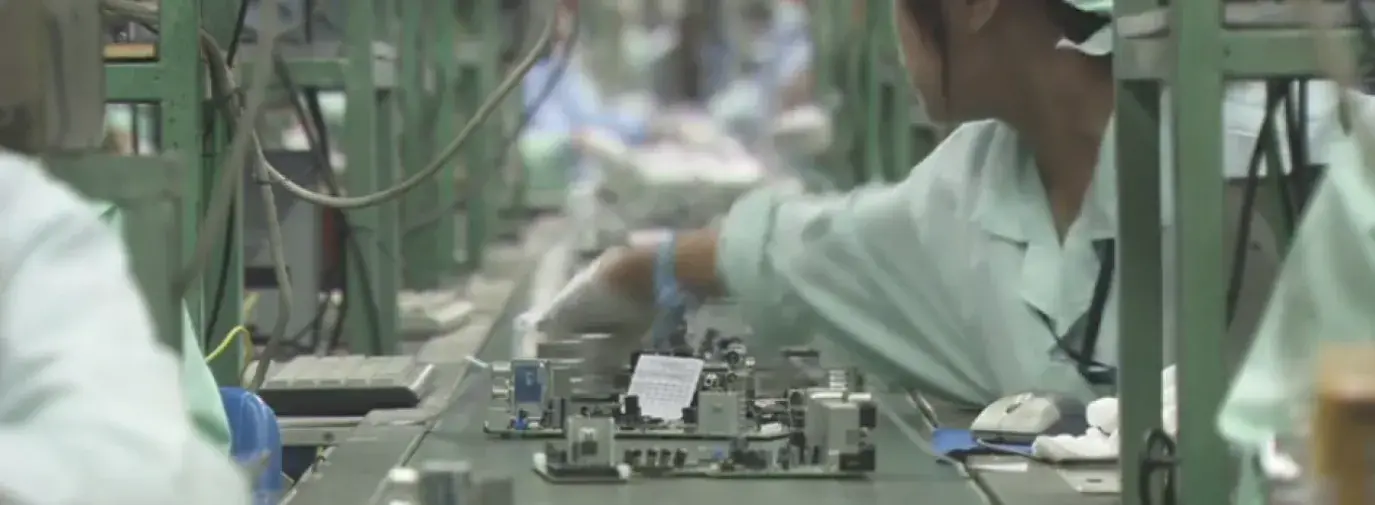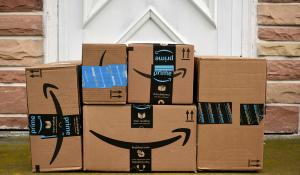
Your cell phone and other favorite electronics may have been made in an abusive sweatshop—and poisoned the workers who made them.
The nonprofit China Labor Watch (CLW), a longtime ally of Green America’s, has a history of exposing what life has been like in Chinese supplier factories, which make many of the electronics on US store shelves. CLW has sent a number of undercover workers into those factories to report on their experiences.
Most recently, from October 2017 to January 2018, CLW infiltrated the Catcher Technology Co. Ltd. factory in Suqian, China, which manufactures electronics for Apple, IBM, Dell, Sony, HP, and other brands. CLW identified major issues at Catcher regarding worker health and safety, pollution, and forced overtime.
CLW says the Catcher factory employs a complex shift rotation schedule that results in workers putting in overtime hours without earning overtime pay.
An average schedule at the factory was ten hours a day, six days a week, while the company promised an eight-hours-a-day, five-days-a-week schedule in a work regulation pamphlet. Production line workers had to stand for all ten hours, as the factory doesn’t provide seats, resulting in workers quickly becoming exhausted.
Catcher workers encounter toxic chemicals on the job, according to CLW. But the factory provided CLW investigators and other workers with less than one hour of safety training and only paper masks, as well as cotton gloves that appeared to be used. The factory did not distribute eye protection.
Catcher doesn’t disclose to workers—or the public—what chemicals its workers might encounter on the job. But one CLW investigator had to leave the factory after four weeks due to respiratory issues from chemical exposure.
In addition, states a CLW report, “there is a foul odor present in the workshop, but workers are unsure what object is producing the smell. Workers privately discuss how severe the pollution is at Catcher, and there were rumors that workers who worked at [a particular] workshop for a substantial amount of time might develop cancer.”
There is hope that things will improve. Some major tech companies (whose names you’re likely familiar with) are now working with Green America’s Center for Sustainability Solutions to make their supply chains safer.
The Center’s Clean Electronics Production Network (CEPN) is bringing together major electronics retailers and suppliers, labor and environmental advocates, and occupational health and green chemistry experts, along with the workers themselves, to eliminate worker exposure to toxic chemicals in electronics factories. CEPN convenes regular gatherings of these industry stakeholders to focus on the following:
- Creating a system to simplify data collection on toxic chemicals,
- Ranking chemicals used in the industry to prioritize those that are highest risk for action,
- Developing cleaner substitutes for toxic chemicals, and
- Devising a framework for factories to use to substantially involve workers in protecting themselves and others from chemical exposure. To read our exclusive from CEPN director Sarah O’Brien detailing more of this work, e-mail info@greenamerica.org for a digital copy of the article.
While CEPN has helped some big industry players make big strides for worker safety, Samsung continues to be a laggard in the industry, refusing to take steps to improve supplier factories. Green America and allied organizations from around the world delivered 200,000 signatures on various chemical-safety petitions to Samsung in April. The petitions addressed findings from reports about how Samsung factory workers in South Korea and Vietnam were being exposed to toxic chemicals.
“The fact that major brands are now working with their entire supply chains, including workers, to finally address this problem in a meaningful way is very exciting,” says Caroline Chen, Green America’s social justice campaigns manager. “Now, Samsung needs to step up and protect the workers in its supply chain.”
Sign our letter to Samsung, telling it to take action for worker safety from toxic chemicals.







